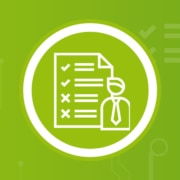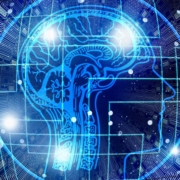Requirements engineering lies at the forefront of software development – and in the future, AI will play a transformational role in that field.
Requirements engineering (RE) defines what a system should do, even before any development begins, and thus is concerned with the systematic collection, documentation and management of requirements. Integrating AI into the RE process makes it possible for requirements to be collected more efficiently and accurately.
Natural Language Recognition
The communication surrounding software projects (emails, customer feedback, meetings, etc.) often contain hidden details with regard to requirements. AI models, especially those which use natural language processing (NLP), can filter out those details from that flood of information, and the recognition of entities, relations and context are key functions in that filtering process. A sentence like “The interface should be faster” is ambiguous to a human being, but by analyzing other known information, an AI system can bring it into perspective and translate it into specific requirements.
Automatic Classification
The development of software products often results in the generation of hundreds or even thousands of requirements. AI can help to automatically classify these requirements into pre-defined categories such as “functional”, “non-functional”, “user-centric” and “security-related”. Such classification is also useful to RE in that it makes it possible to recognize the completeness of requirements. This automatic classification and prioritization of requirements, supported by AI, makes it possible in turn for project members to concentrate on the more critical aspects of the project.
Continuous Learning
The dynamic nature of software projects necessitates systems which can adapt and learn. AI models are not static. They can, and should, be trained regularly on new data so that they can stay current. Through feedback loops and active approaches to learning, an AI system can improve its accuracy over time. Nevertheless, careful monitoring is also essential, to avoid so-called “model drifting” in which the predictions of a model become less accurate over time.
In sum, integrating AI into requirements engineering offers tremendous advantages which are reflected in RE processes which are more efficient, more precise, and more adaptive. Nevertheless, requirements engineers and software analysts should always keep an eye out and validate AI model results on a regular basis. The key to AI’s success lies in the balance between technology and the human ability to judge.
Our trainings for AI and RE:
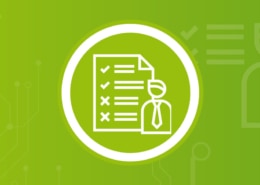 https://spiritinprojects.com/wp-content/uploads/2019/07/training-requirements-engineering.jpg
600
1200
spiritmarketing
https://spiritinprojects.com/wp-content/uploads/2020/04/sip_web_padding_10px_topbot.jpg
spiritmarketing2023-10-27 15:59:412023-11-01 20:37:23Coaching for IREB CPRE AL Specialist Written Assignment
https://spiritinprojects.com/wp-content/uploads/2019/07/training-requirements-engineering.jpg
600
1200
spiritmarketing
https://spiritinprojects.com/wp-content/uploads/2020/04/sip_web_padding_10px_topbot.jpg
spiritmarketing2023-10-27 15:59:412023-11-01 20:37:23Coaching for IREB CPRE AL Specialist Written Assignment https://spiritinprojects.com/wp-content/uploads/2022/07/videotraining_re.jpg
600
1200
spiritmarketing
https://spiritinprojects.com/wp-content/uploads/2020/04/sip_web_padding_10px_topbot.jpg
spiritmarketing2022-07-18 09:15:472023-02-01 21:09:32Video Training – Requirements Engineering Fundamentals per IREB CPRE FL 3.0
https://spiritinprojects.com/wp-content/uploads/2022/07/videotraining_re.jpg
600
1200
spiritmarketing
https://spiritinprojects.com/wp-content/uploads/2020/04/sip_web_padding_10px_topbot.jpg
spiritmarketing2022-07-18 09:15:472023-02-01 21:09:32Video Training – Requirements Engineering Fundamentals per IREB CPRE FL 3.0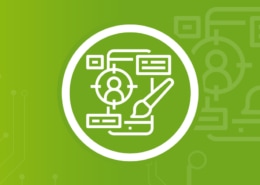 https://spiritinprojects.com/wp-content/uploads/2021/10/training_ux.jpg
600
1200
spiritmarketing
https://spiritinprojects.com/wp-content/uploads/2020/04/sip_web_padding_10px_topbot.jpg
spiritmarketing2021-10-17 15:00:422022-02-19 17:51:39Certified Professional for Usability and User Experience — User Requirements Engineering (CPUX-UR)
https://spiritinprojects.com/wp-content/uploads/2021/10/training_ux.jpg
600
1200
spiritmarketing
https://spiritinprojects.com/wp-content/uploads/2020/04/sip_web_padding_10px_topbot.jpg
spiritmarketing2021-10-17 15:00:422022-02-19 17:51:39Certified Professional for Usability and User Experience — User Requirements Engineering (CPUX-UR)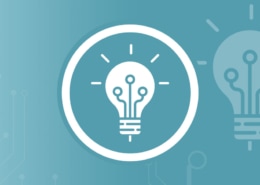 https://spiritinprojects.com/wp-content/uploads/2019/12/training_inno.jpg
600
1200
spiritmarketing
https://spiritinprojects.com/wp-content/uploads/2020/04/sip_web_padding_10px_topbot.jpg
spiritmarketing2021-10-17 14:28:592022-12-13 14:30:50Digital Design Professional
https://spiritinprojects.com/wp-content/uploads/2019/12/training_inno.jpg
600
1200
spiritmarketing
https://spiritinprojects.com/wp-content/uploads/2020/04/sip_web_padding_10px_topbot.jpg
spiritmarketing2021-10-17 14:28:592022-12-13 14:30:50Digital Design Professional https://spiritinprojects.com/wp-content/uploads/2019/05/training-requirements-engineering.jpg
600
1200
spiritmarketing
https://spiritinprojects.com/wp-content/uploads/2020/04/sip_web_padding_10px_topbot.jpg
spiritmarketing2019-05-31 19:39:312023-02-01 21:07:16Requirements Engineering Fundamentals
https://spiritinprojects.com/wp-content/uploads/2019/05/training-requirements-engineering.jpg
600
1200
spiritmarketing
https://spiritinprojects.com/wp-content/uploads/2020/04/sip_web_padding_10px_topbot.jpg
spiritmarketing2019-05-31 19:39:312023-02-01 21:07:16Requirements Engineering Fundamentals https://spiritinprojects.com/wp-content/uploads/2019/05/training-requirements-engineering.jpg
600
1200
spiritmarketing
https://spiritinprojects.com/wp-content/uploads/2020/04/sip_web_padding_10px_topbot.jpg
spiritmarketing2019-05-30 19:46:012023-02-01 21:09:51Requirements Elicitation and Consolidation
https://spiritinprojects.com/wp-content/uploads/2019/05/training-requirements-engineering.jpg
600
1200
spiritmarketing
https://spiritinprojects.com/wp-content/uploads/2020/04/sip_web_padding_10px_topbot.jpg
spiritmarketing2019-05-30 19:46:012023-02-01 21:09:51Requirements Elicitation and Consolidation https://spiritinprojects.com/wp-content/uploads/2019/05/training-requirements-engineering.jpg
600
1200
spiritmarketing
https://spiritinprojects.com/wp-content/uploads/2020/04/sip_web_padding_10px_topbot.jpg
spiritmarketing2019-05-29 20:26:022023-11-20 22:46:10Requirements Modeling
https://spiritinprojects.com/wp-content/uploads/2019/05/training-requirements-engineering.jpg
600
1200
spiritmarketing
https://spiritinprojects.com/wp-content/uploads/2020/04/sip_web_padding_10px_topbot.jpg
spiritmarketing2019-05-29 20:26:022023-11-20 22:46:10Requirements Modeling https://spiritinprojects.com/wp-content/uploads/2019/05/training-requirements-engineering.jpg
600
1200
spiritmarketing
https://spiritinprojects.com/wp-content/uploads/2020/04/sip_web_padding_10px_topbot.jpg
spiritmarketing2019-05-28 20:31:042023-11-20 22:45:44Requirements Management
https://spiritinprojects.com/wp-content/uploads/2019/05/training-requirements-engineering.jpg
600
1200
spiritmarketing
https://spiritinprojects.com/wp-content/uploads/2020/04/sip_web_padding_10px_topbot.jpg
spiritmarketing2019-05-28 20:31:042023-11-20 22:45:44Requirements Management https://spiritinprojects.com/wp-content/uploads/2019/05/training-requirements-engineering.jpg
600
1200
spiritmarketing
https://spiritinprojects.com/wp-content/uploads/2020/04/sip_web_padding_10px_topbot.jpg
spiritmarketing2019-05-27 20:34:252023-01-08 21:09:13Applying Requirements Patterns
https://spiritinprojects.com/wp-content/uploads/2019/05/training-requirements-engineering.jpg
600
1200
spiritmarketing
https://spiritinprojects.com/wp-content/uploads/2020/04/sip_web_padding_10px_topbot.jpg
spiritmarketing2019-05-27 20:34:252023-01-08 21:09:13Applying Requirements Patterns https://spiritinprojects.com/wp-content/uploads/2021/10/training_ux.jpg
600
1200
spiritmarketing
https://spiritinprojects.com/wp-content/uploads/2020/04/sip_web_padding_10px_topbot.jpg
spiritmarketing2019-05-26 20:38:412022-02-19 17:52:52Certified Professional for Usability and User Experience – Foundation Level
https://spiritinprojects.com/wp-content/uploads/2021/10/training_ux.jpg
600
1200
spiritmarketing
https://spiritinprojects.com/wp-content/uploads/2020/04/sip_web_padding_10px_topbot.jpg
spiritmarketing2019-05-26 20:38:412022-02-19 17:52:52Certified Professional for Usability and User Experience – Foundation Level 







